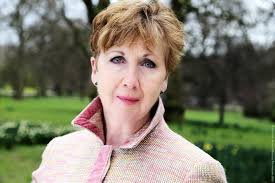Theatre Royal Brighton, Sunday 8 May 2016
There was a time, not many years ago, when Opera was a key feature of the Brighton Festival. Whether the exigencies of finance have caused the change or a simpler matter of taste, Opera is a rarity these days. Moreover, fully staged performances are becoming rarer in themselves, so it was not unusual to find that Purcell’s Dido and Aeneas was advertised as a concert performance. No problem there for there is little action in the work itself, the focus being essentially on the emotional state of the characters.
Musically this was impressive throughout. Ann Murray is a splendidly convincing Dido, bringing authority and passion to the part as well as musical sensitivity to Purcell’s beautifully spun lines. Charlotte Beamont’s lighter, crisper Belinda was a fine foil, encouraging in the opening scenes but deeply sympathetic in the tragic conclusion. Benjamin Appl was an unusually forthright Aeneas and drawing on a counter-tenor, the heroic ally voiced Rupert Enticknap, as the Sorceress was a stroke of genius. So far so good. There was no chorus but four solo singers added all the other, smaller, parts and the choral sections.
La Nuova Musica formed the instrumental band – nine musicians led from the muselar by David Bates. While there was considerable sensitivity in their playing, there was a lack of diversity to the range of tone available, and some of the accompaniments – particularly the use of harp and percussion – were unconvincing.
Dido is a short work and this has always been a problem for producers. Should it form part of an evening, alongside another, similar, work; should it stand alone or should it be augmented? The programme note argued against augmentation but this is what we got in a compromise which went against the flow of the narrative. Purcell is not writing an opera-ballet as Rameau did. The dances should be fully integrated into the action but alas here they regularly seemed to act against it, and the choreography was out of keeping with the score. In the end, the added dances simply held back the inevitable denouement. The evening was rescued at the end by the superb staging of Dido’s lament by Ann Murray. A standard concert performance (in The Dome surely?) would arguably have been far more satisfying.

